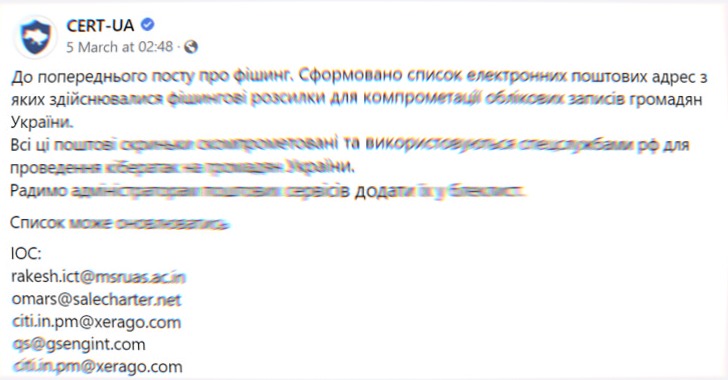Individuals in multiple organizations that are involved in the COVID-19 vaccine supply chain are being targeted in an organized spear-phishing campaign that appears designed to harvest their online credentials for future attacks.
At risk is data associated with critical components and participants in the so-called cold chain that ensures safe preservation of COVID-19 vaccines during storage and transportation. One example is the potential theft of intellectual property associated with solar panel powered containers designed to keep COVID-19 vaccines cold in countries where reliable power is not readily available.
Researchers from IBM Security’s X-Force team, who discovered the threat, described the spear-phishing campaign as spanning six countries and targeting entities associated with Gavi, the Global Vaccine Alliance, and the Cold Chain Equipment Optimization Platform (CCEOP) program.
According to IBM, the campaign — especially the victim-targeting — has all the hallmarks of state-backed activity. However, the vendor stopped short of actually identifying any group or government that might potentially be sponsoring the activity.
“The purpose of the campaign appears to be for credential harvesting,” says Melissa Frydyrch, threat hunt researcher at IBM Security X Force. “After obtaining legitimate credentials, it may be possible for an adversary to perform a myriad of potential actions, from collecting sensitive or critical information to even subsequent disruptive or destructive attacks.”
The spear-phishing campaign itself involves an email purportedly from an executive at Haier Biomedical, a Chinese company that is currently a supplier for the Gavi CCEOP program.
The phishing messages pose as requests for quotations (RFQ) related to UNICEF’s CCEOP program and contain malicious links intended to harvest credentials, Frydyrch says.
The email body is the same for each recipient and explains that Haier Biomedical intends to place an order with the recipient’s company. It provides contractual stipulations that must be met, such as the advanced payments for specific refrigeration units and verification by UNICEF to complete transactions. Attached to the emails is a malicious html file “RFQ – UNICEF CCEOP and Vaccine Project,” Frydyrch says.
“Once the email attachment is opened, the user is presented with a blurred document image and a window for the user to populate their username and password,” she says. “We did not observe any malware attached the to the HTML files. The HTML files are for obtaining credentials only.”
Sophisticated Targeting
What makes the campaign dangerous is the targeting, which suggests the adversary has a deep understanding of key participants and components in the COVID-19 vaccine cold chain, IBM said in its report. Targets of the phishing campaign so far have included solar panel manufacturers and companies associated with petrochemicals that are used to produce dry ice — a key component of the vaccine cold chain. Other targets have included the European Commission’s Directorate-General for Taxation and Customs Union and a German website developer with clients in the pharmaceutical, container, biotechnology and communication components sectors.
In all, IBM has counted at least 10 organizations in six countries that have been targeted so far, Frydyrch says. All the phishing emails IBM has uncovered so far impersonate a same, single key account manager from Haier Biomedical, she says. Frydyrch describes the recipients as select executives in sales, procurement, IT, and finance positions.
“It is possible the recipients would have direct access to sensitive, commercial information associated with their respective companies’ participation in cold chain operations,” she adds.
Carl Wearn, head of e-crime at Mimecast, says the new campaign is another reminder of how cyberattackers are always ready to take advantage of major events to harvest confidential data. The past several months have seen numerous attacks targeting healthcare companies involved in COVID-19 research, and now the focus has shifted to entities in the vaccine supply chain.
One way attackers will try and monetize stolen credential data is to use it to launch ransomware attacks, he predicts.
“More traditional or less skilled attackers will almost certainly be looking for a wide range of intellectual property to sell on,” he says. Potential customers could include competitors, nation-states, or groups involved in their own independent research.
“I also would not discount the potential motivation of significant disruption that could well be caused by the use of wiper software in order to attempt to prolong periods of economic damage and uncertainty for individual states,” Wearn adds.
Bob Rudis, chief data scientist at Rapid7, says the pandemic has been a boon both for cyberattackers and for what he describes as disaster scammers looking to make a quick buck at the expense of others.
According to Rudis, Rapid7 has observed a recent uptick in domain registrations involving vaccine-themed names. He suspects that with the current frenzy around vaccine availability, attackers will try to use fake domains to scam people into giving up financial account information to procure fake vaccines.
The new vaccine-themed domains could also lead some to try to get on “advance lists” and only end up having their endpoint devices compromised or personal information stolen, he says.
Jai Vijayan is a seasoned technology reporter with over 20 years of experience in IT trade journalism. He was most recently a Senior Editor at Computerworld, where he covered information security and data privacy issues for the publication. Over the course of his 20-year … View Full Bio
Recommended Reading:
More Insights













